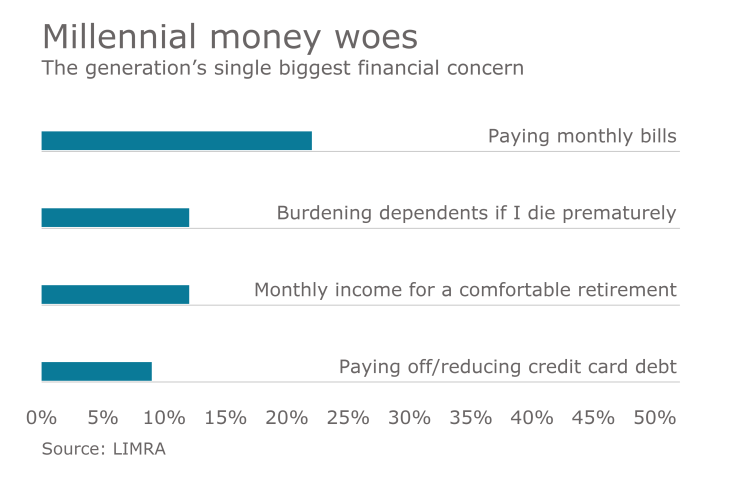HR professionals can strengthen employee recruitment and retention by rethinking workplace benefits by looking through the point of view of millennials, a new report by Colonial Life shows.
Millennials Come of Age uses industry and internal company research to illustrate the best strategies, communication tools and technology HR professionals can use to ensure their companies find and keep the best and brightest among the largest generation in U.S. history.

In Colonial Life’s report, the first step in reimagining the 21st century workplace with millennials at the center may be to alter how benefits are positioned in the first place. Insurance — whether medical and dental or life and disability — has long been considered a vital tool to protect American workers and their families from bad events that impact everyone. Moving forward, benefits including insurance are best cast as an important piece of overall physical, emotional and financial health.
Also see: “
Rather than considering dental insurance as a way to protect themselves against tooth decay and high-priced dentist bills, millennials may be more willing to consider dental insurance as a way to stay healthy.
Rather than considering life insurance as a way to prevent a family from being left with a burial cost, millennials may want to consider it a way to ensure their children’s college education is covered if a household income-earner dies.
Stephen Bygott, vice president for marketing at Colonial life, says there is a lot more thinking that needs to be involved in order for this reimagining to be fully realized. “For millennials, being healthy doesn’t just mean not feeling sick,” Bygott says. “It’s commitment to an ongoing healthy approach to life, including eating habits, exercise and avoiding activities that can be viewed as damaging.”
Millennials are economically fragile
Millennials make up the most concerned generation when it comes to building emergency funds, saving for large purchases, paying off education loans, maintaining a good credit score and following a monthly budget.
Nearly, one-third of millennials report having no savings set aside for emergencies or to cover their expenses if they are forced to miss work.
At least 23% of Gen Xers and 18% of baby boomers have no savings and this lack of savings may be driving a delay in marriage, starting a family and home ownership. In 2010, 23% of Americans 18 to 31 were married and living in their own household, down from 43% in 1981 and 56% in 1968.
“These life events are traditionally seen as drivers for insurance purchasing decisions,” Bygott says. “When people get married, have a child or buy a home, they have more to protect or worry about.”
Because of lower premiums, today’s high-deductible health plans may be attractive to millennials; however, these plans can leave employees vulnerable to considerable financial risk.
Products such as disability insurance, critical illness insurance and accident insurance are built to allay those concerns and protect them and their household from financial stress. HR professionals should consider adopting tactics to better communicate to millennial employees using technology and multiple touchpoints to make benefit communication efforts more effective, the report says.





